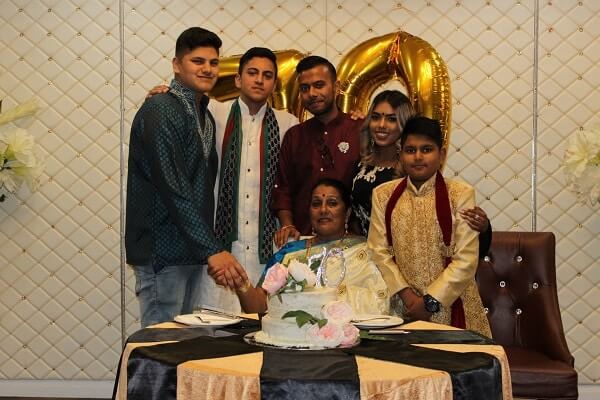Growing up in one of Sydney’s most diverse suburbs meant that I was surrounded by a rich tapestry of people and cultures. I warmly recall my environment, which was made up of families from every corner of the world. My slice of Sydney was known for its prominent Assyrian, Vietnamese, and Italian communities, who all contributed massively to shaping the Fairfield area.
Notwithstanding its obvious multiculturalism, most in this community were perplexed when I would share stories of my own background. Largely because I am of Fijian Indian ancestry, and to most people, the Fijian Indian community was not widely known, at least back in the early 2000s. To most, I was first an Australian – having been born down the road at Fairfield Hospital; despite which I was constantly left asking “who am I?”.
I have always relished connection, which was a concept that I would not really get a chance to explore until high school where I was one of three students of Fijian Indian background. I had big questions about myself, I didn’t see many others who looked like me outside of my family, and those I did come across, were somehow all known to my parents, including the three others at school. Fiji is a small place.
Searching for a place to belong
The enduring questions that form in young minds about belonging are hard to firmly address in the confined spaces of a school. While opportunities were provided to form relationships with peers, when so few of them came from the same community, I usually felt lost, and those around me were badly placed to assist. While outwardly South Asian, the cultural differences between those from India and from Fiji began to become noticeable at school, and mostly from our divergent language.
I had always assumed the Fiji-Hindi I spoke was the standard. The language is a register of Awadhi, with smatterings of English, Fijian, and Bhojpuri thrown in. This was a utilitarian development, owing to the diversity among the original Girmityas. Of course, I had known none of this growing up – only realising the inherent differences when I had the chance to explore my environment.
I probably sound bitter, which is not to say I felt “left out”, but rather that I was seeking a deeper meaning to my identity, and I did not find it much in the spaces around me. Schools usually are ideal places for forming your sense of identity. If anything, my ‘Australianness’ strengthened at school, with such multiculturalism everywhere, I understood this to be a place where all can be who they are.
Despite this, I needed to find belonging in the community I was both so close to and yet so far away from. Being Fijian Indian in Australia means you take up a unique place on the spectrum: you are neither Indian from India, Fijian from Fiji, or Australian from Australia. You are a combination of all of these – ancestrally Indian, contemporarily Fijian, and uniquely Australian. You take on the ancient cultural worldview of India including in religion, the laid-back lifestyle of the Islands and the decidedly unique sense of fairness and equity that defines the Australian character.
You are in essence, different. But a kind of different that is becoming increasingly common, and especially so in a community that is beginning to understand what this means. At first, among people from India, the space I occupied appeared foreign. “He looks like us” many thought, “but he sounds different” they would continue. This would naturally lead to discussions about the journey many thousands of Indians made to the Fiji Islands. These talks often prompted much surprise from my friends hailing from the Subcontinent – usually punctuated by shock that they did not know about these historical events.
Searching for identity requires acknowledgement of its fluid nature
Navigating identity is never easy, for me, this has been largely defined by my search for societal meaning. For others, this same journey will take on different forms, all of which add to our developing understanding of who we are. Australia is a place where you can be comfortable in your skin, but also seek to know more about yourself and gain the answers you need to better define your identity. It is precisely such a country because we are all on this journey in some way or another. We seek meaning to situate ourselves within the continuum of the past, present, and future.
I was afforded the chance to learn about other people – to listen to their stories, to understand why and how we become who we are today by reflecting deeply on who we were back then. I learned of the struggles faced by the Assyrian community, and of the plight of Southern Vietnamese refugees and the unspeakable horrors experienced by the parents of my Cambodian friends under the brutal reign of Pol Pot.
But what became of their descendants is what matters here; those same displaced peoples became Australians who built this community, never forgetting their past, and their stories. Indeed, our national story has always been one of exploration of the personal, appreciating what has happened, and working on what is to come.
Out of it all we are better for wanting to know who we can be together, and it often starts with one simple question: “who am I?” Fijian Indian in Australia
Read More: Fiji-Baat: A children’s series about language and identity





